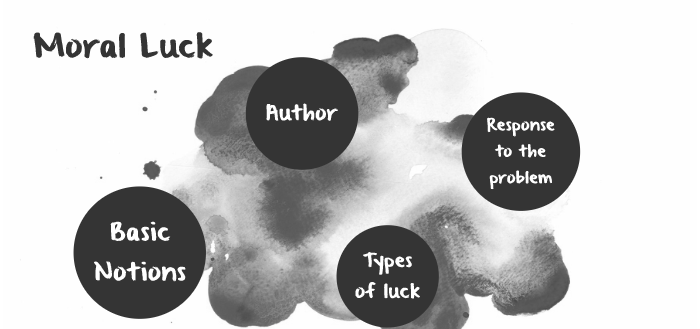Introduction
In the complex landscape of decision-making, our choices are often influenced by various mental models. One intriguing concept is Moral Luck, a cognitive bias deeply rooted in human psychology. Moral Luck refers to the phenomenon where the moral worth of our actions is influenced by factors outside our control. This mental model holds significant relevance in decision-making processes as it challenges our perception of personal responsibility and highlights the role of luck in shaping outcomes. By understanding the impact of Moral Luck on our daily lives, we can make more informed and morally sound decisions. In this blog post, we will explore the concept of Moral Luck, examine its prevalence in personal, business, and public policy decisions, discuss the cognitive biases that contribute to its occurrence, offer practical strategies to identify and mitigate Moral Luck, and emphasize the value of awareness in decision-making.
Understanding Moral Luck: The Role of External Factors
Moral Luck challenges the notion that our moral worth is solely determined by our intentions and actions. It highlights the role of external factors, such as luck or circumstances, in determining the outcomes and moral judgments of our actions. According to this model, two individuals with the same intentions and actions can face vastly different moral judgments and outcomes due to factors outside their control. Moral Luck forces us to question the fairness and objectivity of moral assessments and the extent of personal agency in decision-making.
Examples of Moral Luck in Various Contexts
- Personal Life Decisions: Consider a person who is involved in a car accident while driving carefully and following all traffic rules. Despite their responsible behavior, an unforeseen event such as a drunk driver colliding with their vehicle leads to severe injuries or fatalities. Society may perceive this individual as morally culpable, attributing blame for the outcome even though it was beyond their control. This example demonstrates the influence of Moral Luck on moral judgments and the potential irrationality of holding individuals solely responsible for outcomes they cannot control.
- Business Scenarios: In the business world, Moral Luck can affect the perception of success or failure. For instance, two entrepreneurs may launch similar startups with the same level of effort, expertise, and ethical considerations. However, one entrepreneur’s venture becomes highly successful due to fortuitous market conditions or external investments, while the other faces significant challenges and eventual failure. The successful entrepreneur may receive praise and admiration for their business acumen, while the failed entrepreneur may be criticized and stigmatized. This disparity illustrates how Moral Luck can distort moral assessments and the perception of personal agency.
- Public Policy-Making: Moral Luck plays a role in public policy decisions, particularly when addressing social issues and inequalities. For example, policymakers may implement policies assuming that individuals have equal opportunities and control over their outcomes. However, factors such as socioeconomic background, access to education, or systemic biases can significantly influence an individual’s chances of success or failure. Ignoring these factors can lead to policies that perpetuate unjust outcomes and hinder societal progress.
Mental Biases and Psychological Underpinnings
Moral Luck is influenced by various cognitive biases
- Outcome Bias: This bias leads us to judge the moral worth of an action based on the outcome rather than the intentions or factors outside an individual’s control. We tend to attribute moral blame or praise based on the observed consequences, disregarding the influence of luck or circumstances.
- Fundamental Attribution Error: This bias involves attributing a person’s actions and outcomes primarily to their internal characteristics or disposition, while downplaying the impact of external factors. By overemphasizing personal responsibility, we neglect the role of luck in shaping outcomes and moral judgments.
- Just-World Fallacy: The Just-World Fallacy reflects our tendency to believe that the world is inherently fair and people get what they deserve. This bias can lead to moral judgments that are disconnected from the influence of luck or external circumstances, reinforcing the belief in personal agency and discounting the role of Moral Luck.
Practical Strategies to Identify and Mitigate Moral Luck
To avoid succumbing to the fallacy of Moral Luck, individuals can employ the following strategies
- Foster Empathy and Perspective-Taking: Cultivate a broader understanding of the external factors that shape outcomes. By empathizing with others and considering alternative perspectives, we can recognize the role of luck and circumstances in influencing moral judgments.
- Evaluate Intentions and Actions: Focus on the intentions and actions of individuals rather than solely on outcomes. Recognize that morally praiseworthy or blameworthy actions should be judged based on the choices made and the control individuals had over those choices, rather than the unpredictable consequences.
- Promote Structural Awareness: Develop an understanding of the systemic factors and biases that contribute to unequal outcomes. Advocate for policies and practices that address these structural issues, ensuring a more equitable distribution of opportunities and reducing the impact of Moral Luck.
- Embrace Humility and Open-Mindedness: Acknowledge the limitations of personal agency and the influence of luck. Embracing humility allows for a more nuanced understanding of moral judgments and encourages a compassionate approach to decision-making.
Conclusion
Moral Luck, the mental model that challenges the notion of personal agency and responsibility, significantly affects decision-making processes. Anchored in human psychology, Moral Luck highlights the role of luck and external circumstances in shaping outcomes and moral judgments. By understanding the prevalence of Moral Luck and recognizing the cognitive biases that contribute to its occurrence, individuals can adopt strategies such as fostering empathy, evaluating intentions and actions, promoting structural awareness, and embracing humility to make more morally informed decisions. Developing awareness and actively avoiding the mental trap of Moral Luck allows us to navigate ethical dilemmas with a broader perspective, promoting fairness and empathy in our interactions and decisions.
